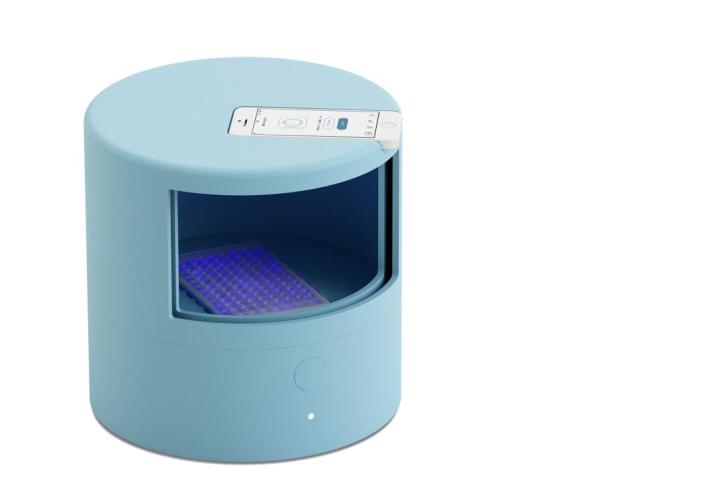
Here’s how it works: A patient gives a small blood sample, which is pipetted into a patented 96-well plate that can detect microRNAs. Each well contains Miroculus’ biochemistry, which closes and shines green only when microRNA is detected in the blood sample.
The plate is then loaded into the $500 baby blue Miriam to run a 60-minute reaction. The results are sent to a smartphone, which analyzes the brightness of each well in real time to determine which microRNAs are present in the sample and whether they exhibit patterns of certain cancers.
Results are sent and accumulated in the cloud. Miroculus also visualizes trends and data to improve treatment. “If we want to better understand and decode diseases we must stop treating them as acute isolated episodes and consider and measure everything that affects our health on a permanent basis,” according to Miroculus’ website.
This decentralized approach to detection and treatment is meant to democratize lab work, making an important form of detection and monitoring available in places where conditions aren’t ideal.
The effectiveness of the Miriam and Miroculus’ approach is rooted in contextual information that can convey more than whether or not a patient has a certain type of cancer. The goal is to grasp how other factors, such as medications and health conditions, affect results.
“We’re a data-driven company, and we believe our value will be in the information we gather, how we correlate the information, and the conclusions we’re able to make,” said Alejandro Tocigl, CEO of Miroculus, in an interview with Wired.
The Miriam has been tested in California, Germany and Mexico, with clinical trials planned for other countries. It will be launched with pharmaceutical companies, which will track how patients react to new drugs until enough microRNA-related data is amassed to enable Miroculus to pursue FDA approval.


